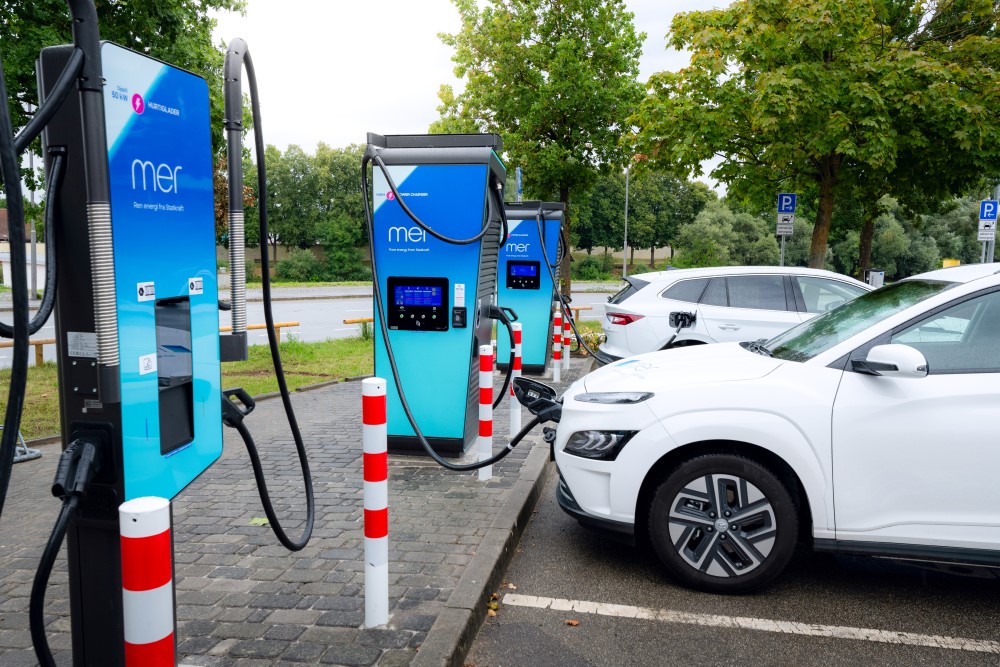Despite promising numbers, the expansion of Germany’s charging station network for electric cars in 2024 is lagging behind industry expectations, causing concerns among experts.

The Federal Network Agency’s charging station register in Germany, as of March 1, 2024, lists 103,226 standard charging points and 25,291 fast-charging points, providing a total charging capacity of 4.52 gigawatts. While the charging network continues to expand, the pace has slowed. The Wirtschaftswoche reports that the Federal Network Agency noted an addition of 3,150 charging points in the first two months of the year, compared to 4,333 in the same period last year, indicating a 27% decrease in new installations. Though the overall charging capacity has increased compared to the previous year, this is attributed to technological advancements.
Reduced sales and construction of charging stations
Industry leaders have expressed concern over the declining sales and construction of charging stations. Julian Krümpel, co-CEO of Kortmann Beton in Lower Saxony, observed a significant drop in sales due to fewer charging stations being built and planning being reduced, postponed, or canceled altogether. Kortmann Beton, a leading supplier of charging station foundations, reported a 30% decline compared to 2023. This trend is not limited to Germany. Italian firm Alpitronic, Europe’s leading fast-charging station manufacturer, also plans to reduce production, adjusting its expected revenue growth from 80% to just 10-20%. Co-founder and CEO Philipp Senoner anticipates a stable but low level for the second half of the year, extending into 2025.
Industry struggles and expert predictions
Two notable bankruptcies highlight the industry’s struggles: Australian fast-charging station manufacturer Tritium in April and Austrian company EnerCharge in July. Senoner attributes the reduced demand to sluggish E-car sales and the fact that operators, having initially stocked up on charging stations due to supply chain fears, are now installing existing inventory rather than purchasing new units. Wulf Schlachter, CEO of consulting firm DXBe, shares concerns about the cooled E-car market. Based on current data, he predicts only 16,000 new fast-charging stations for 2024, about half the number installed in 2023. He also notes that many hastily installed charging stations are underutilized, with only five to six charging sessions per day per station, whereas 16 to 18 are needed for profitability.
Complexities in expanding the charging network
Günther Schuh, scientist and entrepreneur, underscores the significant challenges ahead for the industry in an interview with the Federal Association of Energy and Water Management (BDEW). Schuh, co-founder of electric vehicle manufacturer Streetscooter, asserts that the target of one million public charging points will only be sufficient if the goal of 15 million battery-electric vehicles by 2030 is not met. To reduce wait times, he advocates for more fast or HPC (high-power charging) points. Start-up Numbat from Kempten aims to address some of these challenges by combining battery storage with fast-charging stations, making them less dependent on the quality of the power grid.
As the Wirtschaftswoche quotes, “The low hanging fruits are mostly exploited – locations that are easy, quick, and economically attractive to implement, such as through simple and good grid connection and less construction work due to short cable routes.” The process of finding new locations is becoming “more complex, more expensive, and therefore slower in the speed of expansion.” However, decision-makers remain undeterred, even if significant persuasion is still needed to shift some citizens away from their beloved combustion engines.








